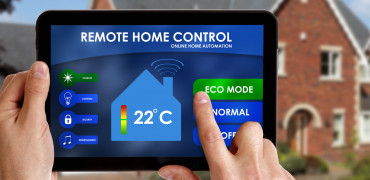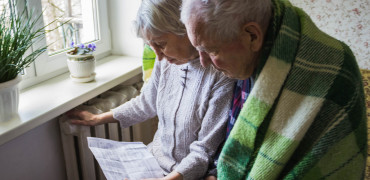Last Easter weekend, Great Britain’s electricity system was the greenest it has ever been, with low-carbon energy sources making up almost 80% of power, no coal generation on the grid and just 10% of power coming from gas fired power station.
UK’s path to net zero carbon emissions by 2050.
However, a number of factors helped this achievement – a sunny, windy day on a bank holiday when factories are not working - coupled with a lockdown, made it a perfect day to capitalise on the UK’s renewable energy sources.
Despite this milestone, there is still more work to be done to reach net-zero carbon emissions by 2050. The government has even increased its own commitment, pledging to cut emissions by 78% by 2035.
As we look to a post-pandemic future, there are calls to the international community to ensure that any economic and social recovery plans take into account the goals of the Paris Climate Agreement - and the upcoming COP26 later this year hopes to agree a package to achieve it.
It’s time to give more attention to heat pumps as a desirable alternative
Decarbonising homes
When agreeing a strategy to help the world get greener, one area we must consider is how we decarbonise the built environment.
Buildings account for a significant part of the UK total carbon footprint – 40% according to UK Green Building Council, and the source of these emissions comes from various places – including the construction of buildings and the electricity used for services inside buildings, such as lighting and IT equipment.
Additionally, a significant portion (around 15%) of energy is used for heating our building stock. Consequently, there are big carbon savings to be made if we change to low carbon renewable forms of heating– particularly considering the UKs large housing stock.
With each oil-fuelled boiler generating an average of 5.3 tonnes of CO2 from each house every year, totalling 8,480,000 tonnes of CO2, moving to a heat pump could significantly reduce carbon emissions.
In fact, by replacing all oil boilers and half of the existing gas boilers with an air source heat pump, we would reduce our national CO2 emissions by 8%, or nearly 29 million tonnes by 2018’s standards.
As part of the drive for a greener environment, new homes won’t be connected to the gas grid from 2025. Now, efforts must be made to prepare the existing housing stock with renewable, low-carbon heating systems – like heat pumps.
Government support
In order to meet its ambitious net-zero targets for the UK, the Government’s independent advisory body, the Committee for Climate Change (CCC) has said that up to 15 million homes would need to be fitted with heat pumps, or hybrid heat pumps, by 2035.
To encourage uptake of heat pumps, the government are planning the Clean Heat Grant (CHG), which will replace the long-standing Renewable Heat Incentive (RHI) in 2022, to provide funding to homeowners wishing to adopt renewable technology in their home.
The CHG will aim to help households and businesses decarbonise their heating through low carbon solutions, primarily air source heat pumps (ASHP). The CHG would offer up to £4,000 for each household that integrates low carbon heating technology to replace traditional fossil fuel heating sources.
The CHG would bring simplicity to for homeowners, and would be more viable for many having an upfront payment rather than a quarterly payment spread over seven years.
Hence the upfront £4,000 per household grant addresses one of the key barriers to the uptake of heat pumps so far.
It makes it a much easier financial decision-making process for homeowners when considering the replacement of their existing heating system.
Embracing heat pumps
The current uptake of low carbon heating in the UK is lower than in other countries, and the CHG is seeking to help change this.
The technology has not been pushed for as long as in other places, and lack of understanding among both installers and consumers is widespread.
For large scale uptake to become a reality, installers need to ensure they understand the benefits of heat pumps, the opportunities that they offer for their own business diversification and offer them to homeowners as viable alternative when it comes to changing their gas or oil heating system.
There is a big market for homes needing to make a switch to cheaper, cleaner low-carbon heating - with 1.6 million UK homes still using oil as a heating system. This means installers have the chance to expand and diversify their business, and encourage consumers to make the switch.
Consumers are also becoming increasingly conscious of their environmental impact and are willing to make steps to reduce their carbon footprint.
Greater awareness and understanding about what a heat pump is, how it works and the wider environmental benefit it brings is key for greater uptake among homeowners.
With gas and oil boilers the familiar, default option, it’s time to give more attention to heat pumps as a desirable alternative.
The future of heating
If the Government and homeowners are committed to meeting the country’s ambitions to be carbon neutral by 2050, then heat pumps are going to play a big part. The new proposals are a much-welcomed step in the right direction.
The financial incentives to climate conscious consumers is a big factor in the uptake of renewable sources of heating and reduces the administrative burden on installers.
Greater awareness is needed on the benefits of heat pumps and low carbon heating solutions if there is ever to be a meaningful change in the way homes are heated.
Max Halliwell, is Vice Chairman of the UK’s Heat Pumps Association and Communications Manager, for Mitsubishi Electric’s Residential Heating



